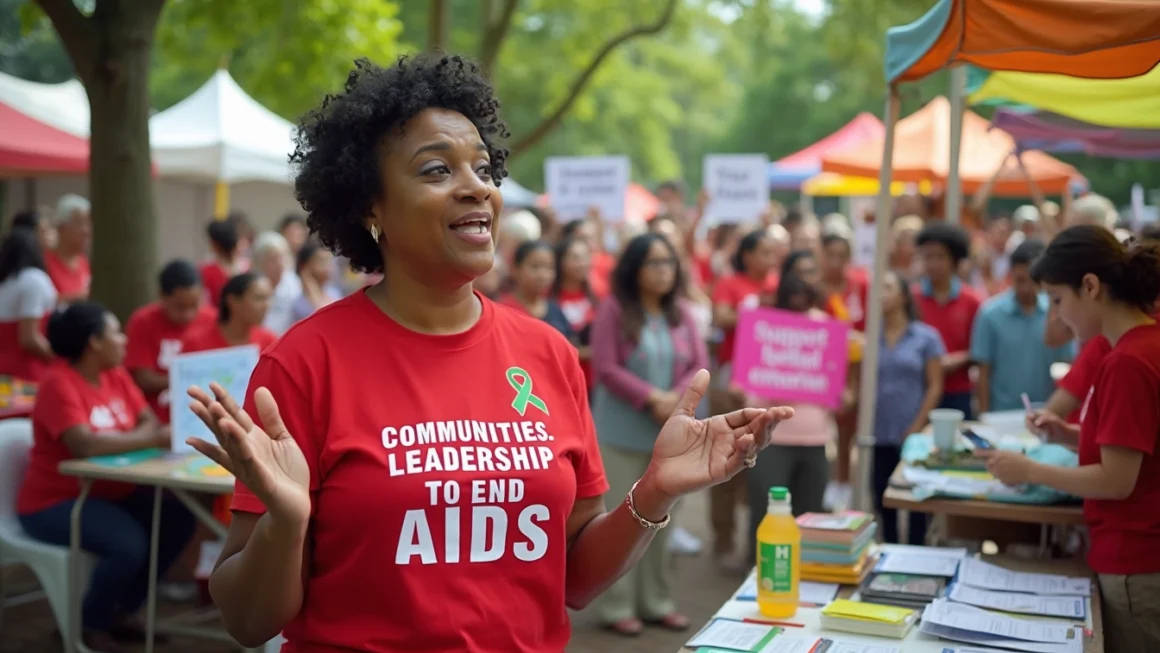As we approach World AIDS Day 2024, it’s crucial to reflect on the progress made in the fight against HIV/AIDS and renew our commitment to ending this global health crisis. This year’s theme, “Communities: Leadership to End AIDS,” highlights the vital role that community-led organizations play in driving change and supporting those affected by HIV.
The Importance of Community Leadership
Table of Contents
Community-led organizations have been at the forefront of the HIV response since the early days of the epidemic. These groups, often formed by people living with HIV and their allies, have been instrumental in:
- Providing support and care for those affected
- Advocating for better access to treatment and prevention services
- Combating stigma and discrimination
- Raising awareness and educating communities
Their grassroots approach and deep understanding of local contexts make them uniquely positioned to reach marginalized populations and address the complex social and cultural factors that contribute to HIV transmission.
Progress and Challenges
While significant strides have been made in HIV prevention and treatment, challenges remain. Recent data from UNAIDS shows that:
- 38.4 million people were living with HIV globally in 2021
- 1.5 million people became newly infected with HIV in 2021
- 650,000 people died from AIDS-related illnesses in 2021
These numbers underscore the ongoing need for sustained efforts to combat HIV/AIDS. Community-led organizations play a crucial role in addressing these challenges, particularly in reaching key populations who may face barriers to accessing traditional healthcare services.
Empowering Communities to Lead
To effectively end AIDS, it’s essential to empower and support community-led organizations. This can be achieved through:
- Increased funding and resources
- Capacity building and technical support
- Inclusion in decision-making processes at local, national, and global levels
- Recognition of their expertise and contributions
By investing in community leadership, we can ensure that HIV responses are tailored to local needs, culturally appropriate, and sustainable in the long term.
The Role of Technology in Community-Led Responses
In today’s digital age, technology plays an increasingly important role in HIV prevention, treatment, and support. Community organizations can leverage various tools to enhance their impact. For instance, automation platforms like Make can help streamline processes, manage data, and improve outreach efforts, allowing these organizations to focus more on their core mission of supporting those affected by HIV.
Looking Ahead: The Path to Ending AIDS
As we commemorate World AIDS Day 2024, it’s clear that community leadership is key to achieving the goal of ending AIDS by 2030. By supporting and empowering community-led organizations, we can:
- Improve access to HIV testing, prevention, and treatment services
- Reduce stigma and discrimination
- Address social and structural barriers to HIV prevention and care
- Ensure that no one is left behind in the HIV response
Taking Action on World AIDS Day
This World AIDS Day, there are several ways individuals can support community-led efforts to end AIDS:
- Volunteer with or donate to local HIV/AIDS organizations
- Educate yourself and others about HIV prevention and treatment
- Advocate for policies that support community-led HIV responses
- Get tested for HIV and encourage others to do the same
- Show solidarity with people living with HIV and challenge stigma
Conclusion
World AIDS Day 2024 serves as a powerful reminder of the ongoing global effort to end AIDS. By recognizing and supporting the leadership of community organizations, we can accelerate progress towards this goal. As we look to the future, let us recommit ourselves to working together, leveraging our collective strengths, and ensuring that every community has the resources and support needed to effectively respond to HIV/AIDS. Together, we can create a world free from AIDS, where everyone has access to the care, support, and dignity they deserve.




